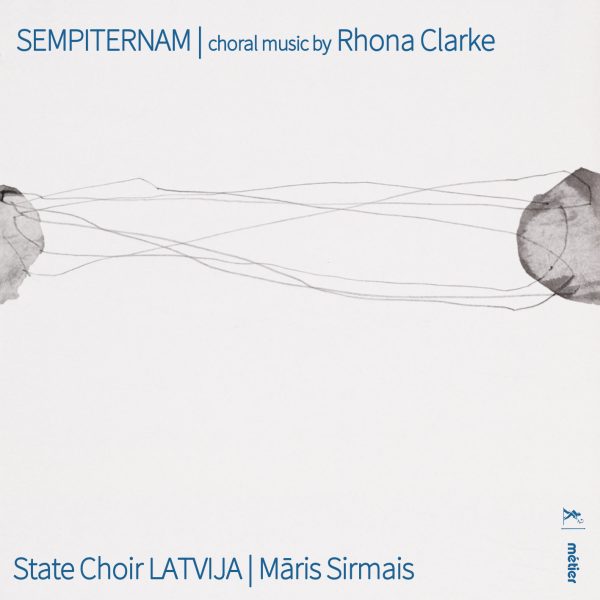Infodad
Topics and sounds of the past remain fascinating to contemporary composers, perhaps especially so in the field of vocal music. And top-notch vocal ensembles are as expert at bringing modern compositions to vivid life as they are in singing older material. The first-rate, smooth-voiced State Choir Latvija shows this clearly on a new Métier CD devoted to works by Rhona Clarke (born 1958). And Clarke’s choice of material is equally clear in showing how composers of today continue to interpret and reinterpret some material that has fascinated musicians for many centuries.
From the opening crescendo of the first piece on the disc, O Vis Aeternitatis (2020), Clarke proves herself adept at writing for massed voices that are declaiming Latin texts with emotional engagement as appropriate in the 21st century as in the far more traditionally religious times hundreds of years ago. Indeed, Clarke’s Two Marian Anthems (2007) use texts that listeners familiar with older vocal music will know well: Regina Caeli and Salve Regina. However, this does not mean that Clarke always handles the texts in the expected manner. This is especially true, for instance, in Ave Atque Vale (2017), whose opening (and later repeated) drum stroke sets a surprising, distinctly funereal tone that emphasizes the latter part of the title phrase, “Hail and Farewell.” On the other hand, the Three Carols on Medieval Texts (2014) are set with the light transparency that would be expected, aside from a few unanticipated dips into gloom in the central Lullay, my Liking (the other two are Glad and Blithe and Make we Merry).
The most-extended work on this CD is a Requiem (2020) that is not as extensive as most works of its type but still includes 20 minutes of heartfelt and particularly elegantly set versions of Introit, Lux Aeterna, Pie Jesu and In Paradisum. The combination of evanescence and earthiness in this work fits the topic particularly well. The five remaining pieces on the disc are shorter, self-contained, and generally more secular. They are The Kiss (2008), A Song for St. Cecilia’s Day (1991), Do Not Stand at My Grave and Weep (2006), The Old Woman (2016), and Rorate Caeli (1994). In all cases, Clarke’s settings fit the words well and allow the texts to come through clearly; and the fine pacing and clarity of the choir under Māris Sirmais show the music in its best and most-effective light.
@divineartrecordingsgroup
A First Inversion Company
Registered Office:
176-178 Pontefract Road, Cudworth, Barnsley S72 8BE
+44 1226 596703
Fort Worth, TX 76110
+1.682.233.4978












